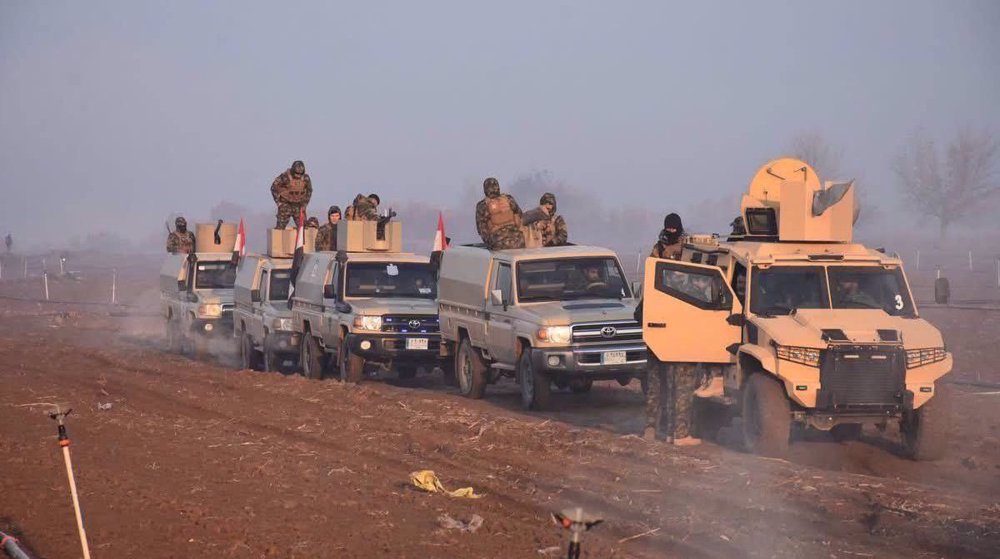Daesh gathers Mosul residents to be used as human shields: Locals
Residents of the Daesh-held Iraqi city of Mosul say the Takfiri terrorist group is forcibly gathering civilians for possible use as human shields against the Iraqi forces conducting a major operation to liberate the city.
Mosul fell to Daesh in 2014, the year the terror group began its campaign of death and destruction in northern and western Iraq.
On October 17, Iraqi army, volunteer Shia and Sunni fighters as well as Kurdish Peshmerga forces launched a long-awaited operation to retake Mosul, the last stronghold of Daesh in the Arab country.
Abu Yunis, a resident of eastern Mosul, said Daesh had asked the locals, "especially the young people, to gather in the area's schools, and bring their identity papers with them."
However, most people had refused the order for fear of being used as human shields, he added.
Abu Mohammed, a western Mosul resident, also confirmed that the militant group had "gathered … people from areas south of Mosul and forced them to move further north to the city."
The extremists try to hide among the civilians and flee from Mosul, he noted, adding that most Daesh militants were “deployed on the right bank [of the Tigris River]… ready to fight, after they prepared car bombs… and snipers, as well as rigging streets and bridges" with explosives.
Mosul is split by the Tigris River, with the western half of the city known as the right bank.

The remarks came a day after the United Nations warned that it had received reports of Daesh terrorists forcing thousands of civilians into Mosul, possibly to be used as human shields.
Ravina Shamdasani, the spokeswoman for the Office of the UN High Commissioner for Human Rights, said there was "a pattern" of the extremists surrounding their bases in Mosul with civilians.
"We have grave concerns for these and tens of thousands of other civilians who have reportedly been forcibly relocated by Daesh in the past two weeks," she said.
Daesh has been committing crimes against all ethnic and religious communities in Iraq, including Shias, Sunnis, Kurds and Christians over the past two years.
VIDEO | Israel wipes out northern Gaza
VIDEO | Press TV's news headlines
Israel kills 5 Palestinian journalists in front of Al-Awda Hospital in Gaza
VIDEO | Gaza ceasefire obstacles
VIDEO | Pakistani Christians mark Christmas in solidarity with Palestine
VIDEO | Plight of Gaza cancer patients
Dozen people killed in armed clashes in Syria’s Tartus
VIDEO | Yemen’s hypersonic missiles continue targeting Israel














 This makes it easy to access the Press TV website
This makes it easy to access the Press TV website